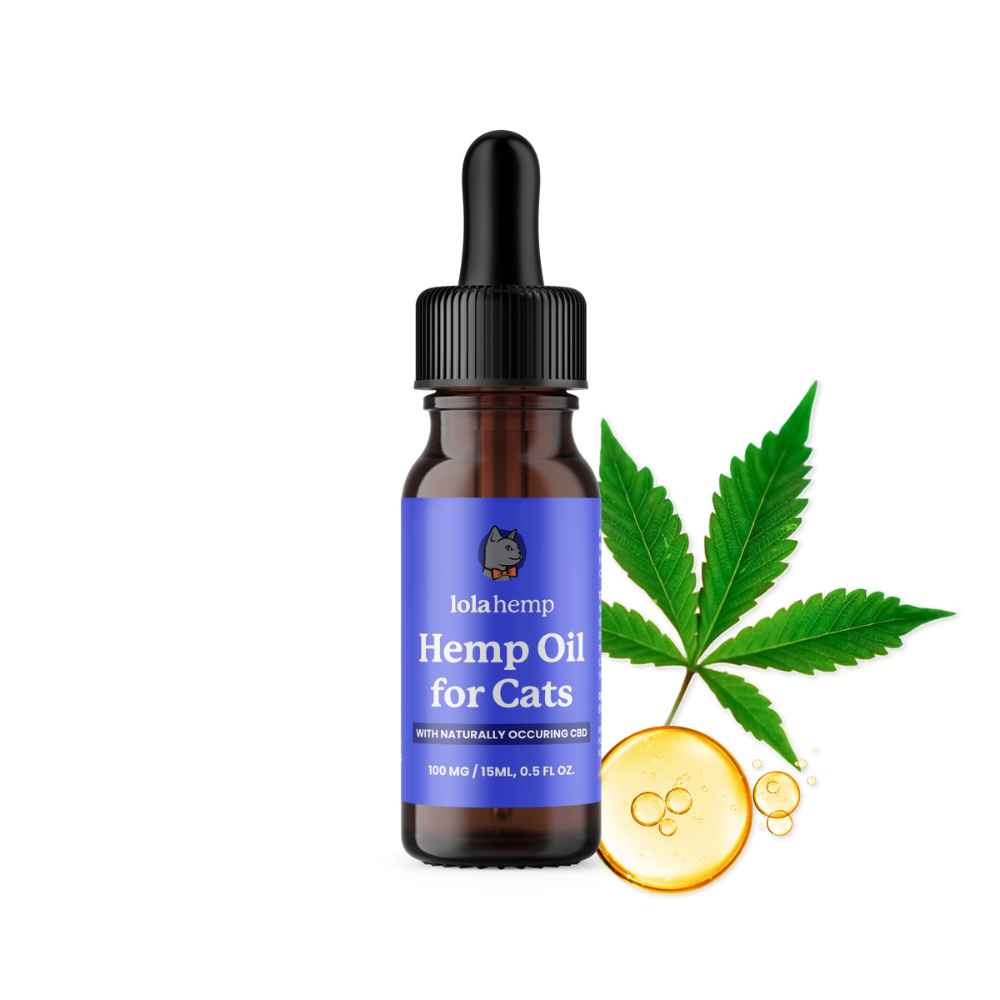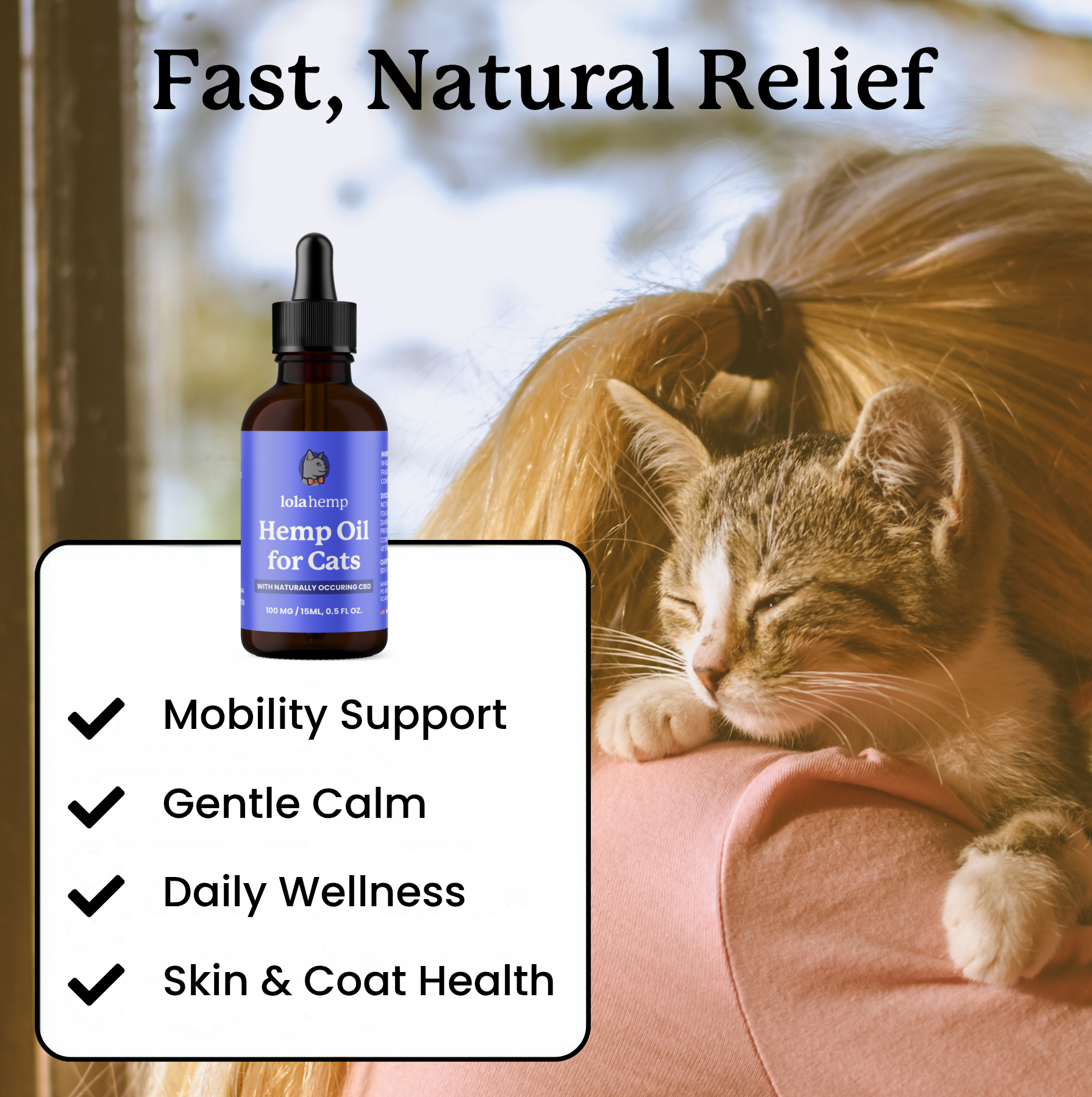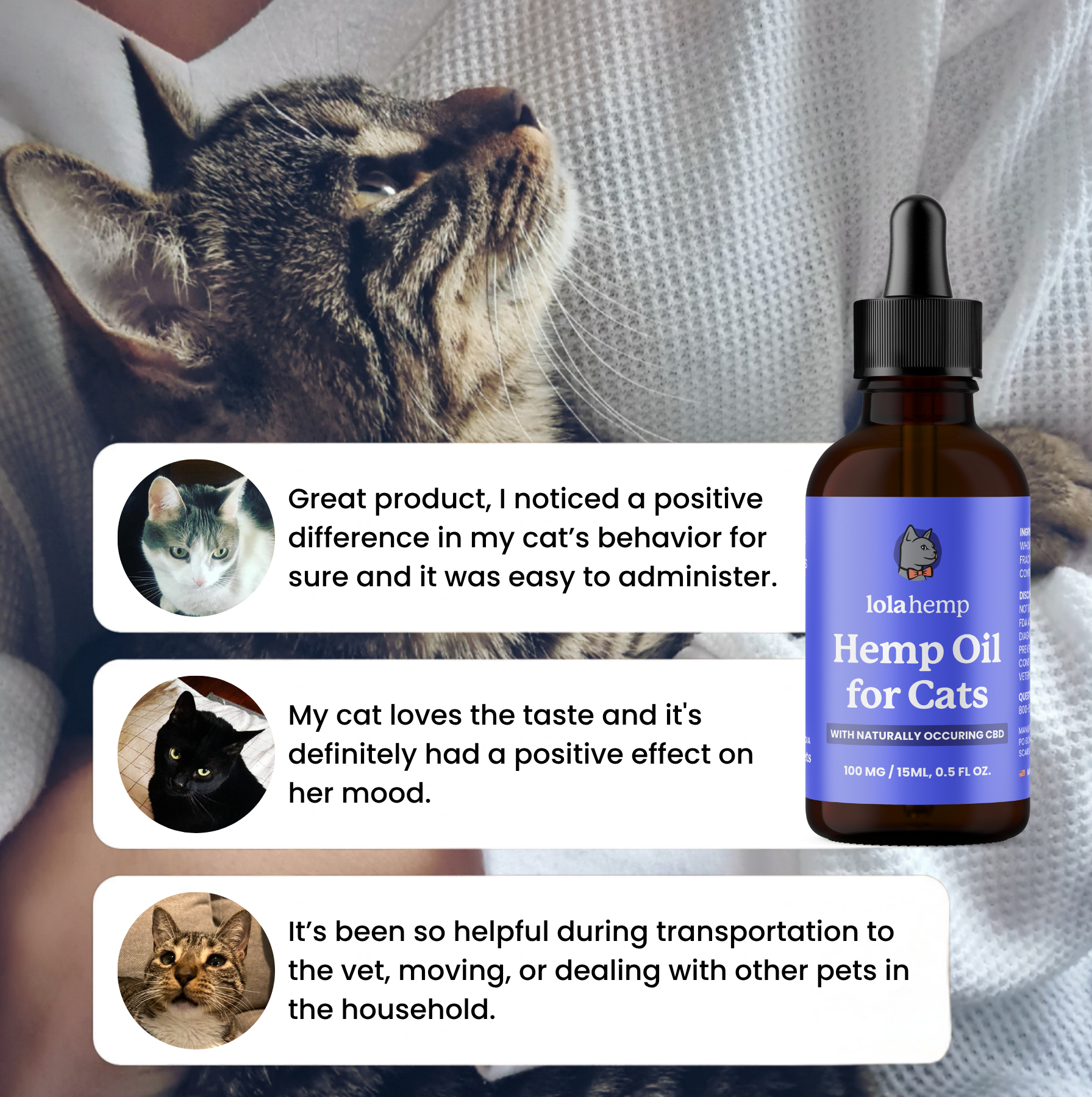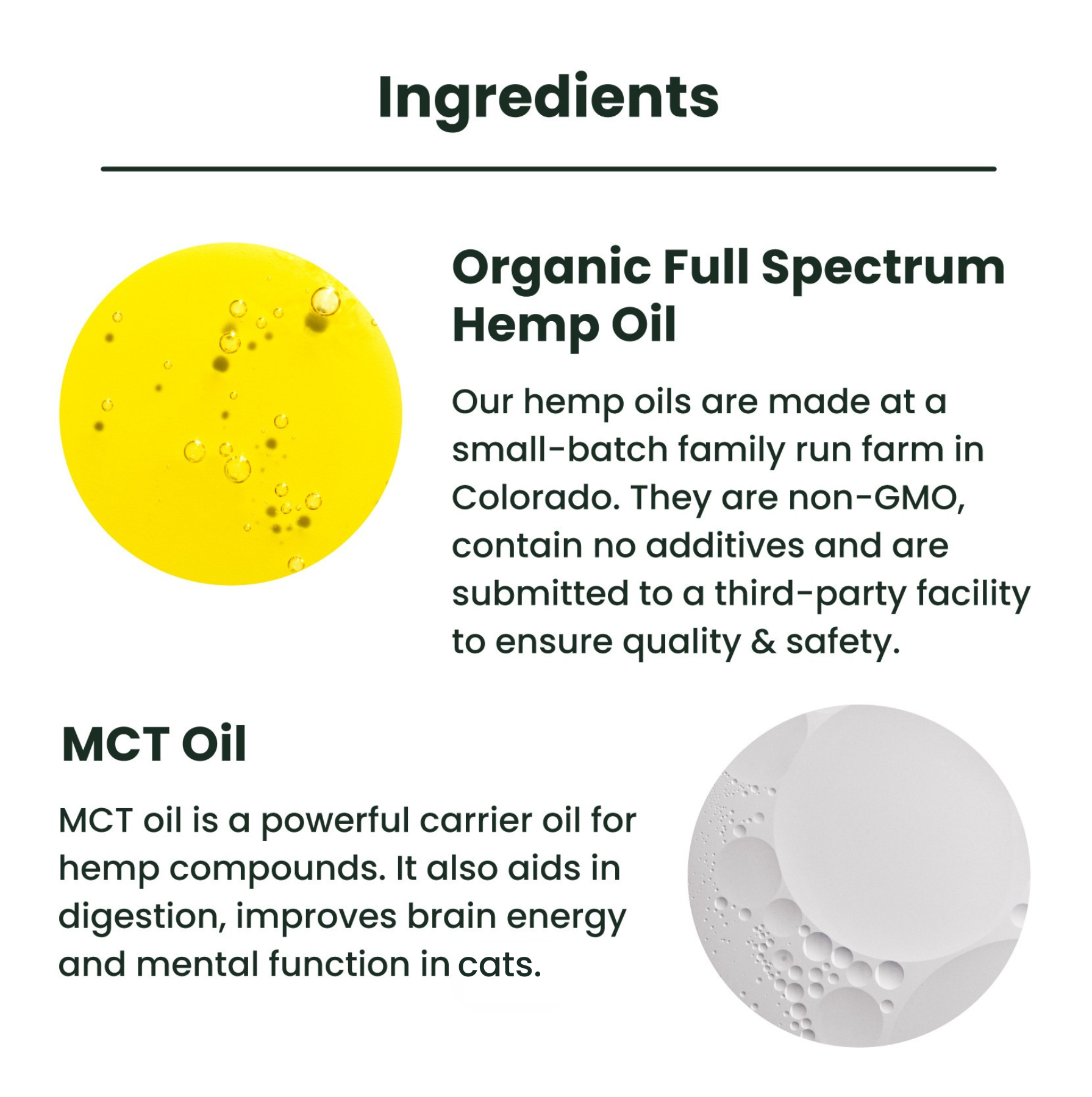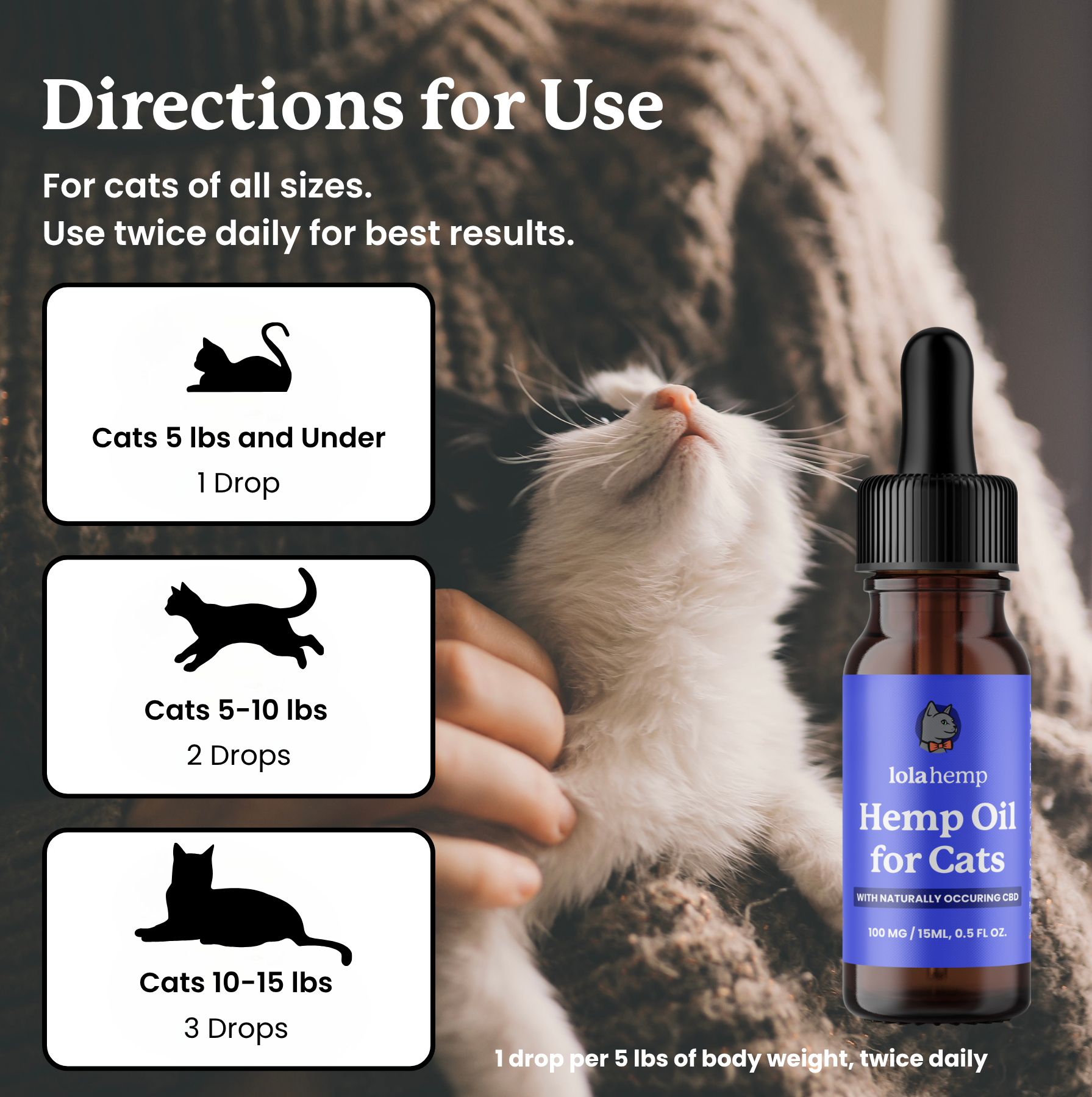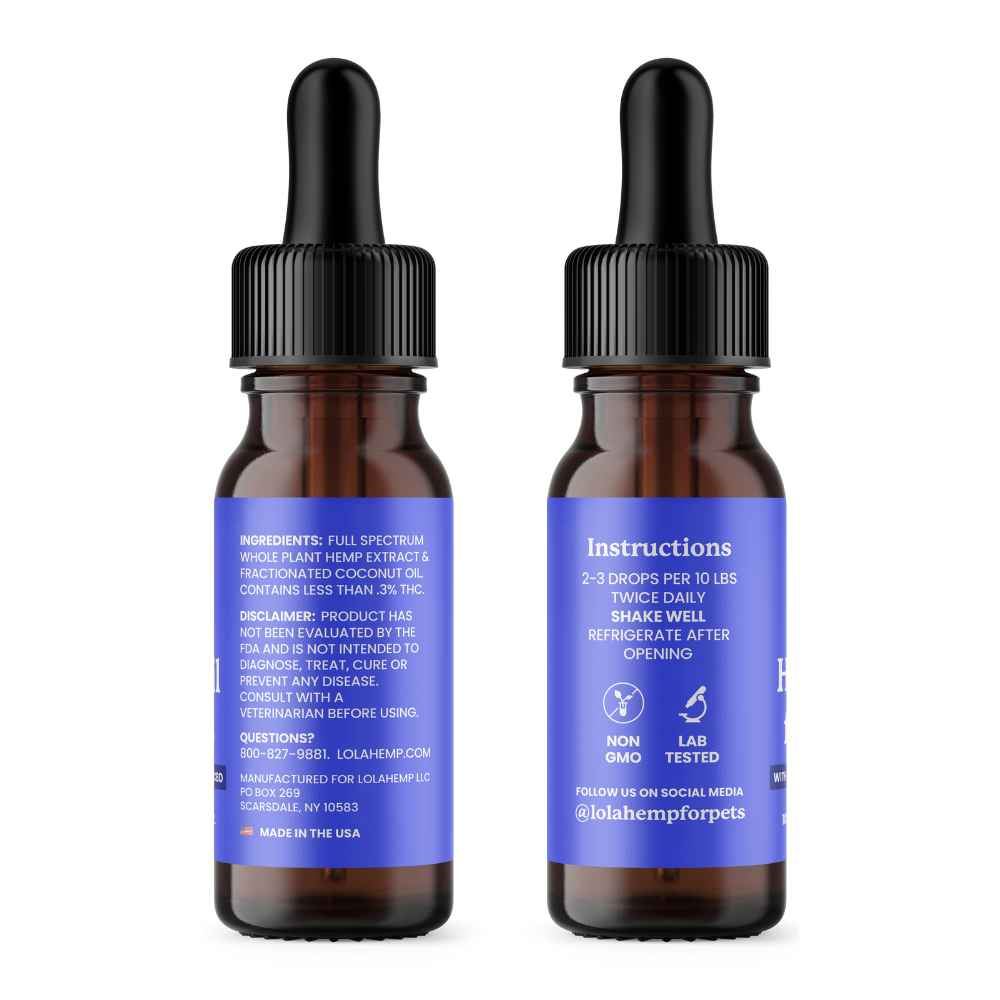10 to 15 percent of cats will experience diarrhea at some point in their lives, and the majority of the time it isn't a large cause for concern. Cat diarrhea typically stems from a change to your cat's food or the ingestion of some kind of human food they're not used to.
In other cases, cat diarrhea can be caused by health issues, stress, medications, allergies, and more. This article provides 3 ideas for home remedies to get your cat's stomach & stool back to normal.
Diarrhea in cats, just like constipation, can be dangerous and needs to be attended to as soon as possible!

3 Home Remedies for Cat Diarrhea
The remedies below are intended for short-lived diarrhea without additional symptoms. If the diarrhea is accompanied by other issues, this could be a larger cause for concern.
Contact Your Veterinarian if:
- If your cat's diarrhea has lasted longer than 48 hours
- The diarrhea is accompanied by vomiting or lethargy
- There is blood or a mucus coating in the stool
- Your cat is dehydrated, has dry gums, or is excessively thirsty
- Your cat has previous health conditions or is elderly (over 10)
1. Give Your Cat's Digestive System 12 Hours to Reset
Why it works: Fasting for a short period can be all that your cat needs to get over their diarrhea. It allows them to process whatever it was that upset their stomach in the first place. Withhold their food for 12 hours, give them an extremely bland meal afterward.
Make Sure They Have Plenty of Water
Never withhold water from your cat. Diarrhea can release a lot of water from your pet's system, so there's a good chance they'll be thirsty as symptoms continue.
Hide the food for half a day, but make sure they have as much water as they want to drink.
Bland Foods to Help Your Cat's Diarrhea
Bland, easily digestible foods are the best option after a period of fasting. These can run right through your cat's system without causing any additional strain on their overworked tummies.
- Boiled chicken (no seasoning, remove skin and bones)
- White rice (cooked, plain)
- Plain pumpkin (no spices or sweeteners)
- Boiled sweet potatoes (plain, unseasoned)
Don't overdo it by feeding them too much at once. Feed in small amounts, and give your cat 30 minutes or so in between micro-meals to give their digestive systems a little more time to return to normal.
It's very important that you don't season these bland foods, and ensure that anything you give your cat is free from sweeteners.
2. Light Exercise to Help Waste Move On
Movement can help your cat's system propel food through the gastrointestinal system, a processed called motility.
Try to engage in some playtime with your cat and get them moving. You can also put them on a short leash and go for a walk. These things should help push their diarrhea through their system so they can start feeling better.
Have Plenty of Water On Hand, and Don't Overwork Your Cat
Remember, cats with diarrhea are more likely to be dehydrated due to loss of liquids in their stool. Don't exhaust your cat and make them even thirstier.
If you go on a walk, make sure to bring some water along and offer it to them periodically.
3. Try an Over-The-Counter Cat Diarrhea Medicine
There are a number of anti-diarrhea liquids for cats that you can buy at your local pet store or drug store. These can be effective at moving things along and getting your cat through diarrheal bouts more quickly.
Look for kaolin and pectin as active ingredients.
Kaolin is Absorbant
- Products with kaolin can absorb excess toxins and water in the intestines, and this helps firm the stool.
- Be sure to keep your cat's water bowl full, as the kaolin will take in some of the water your cat has in their system.
Pectin Thickens Stool
- Pectin functions similarly to Kaolin in that it absorbs toxins and water in your cat's system, making stool more regular.
Over-the-counter medicines for cat diarrhea typically help to make stool more firm, allowing your cat to process them more regularly. That said, these options aren't solutions to cats with regular diarrhea or generally loose stool.
In those cases, you should change the food your cat eats because they might be causing an allergic reaction or general stomach upset.
Causes of Persistent Diarrhea in Cats

Just as there are many ways for people to get diarrhea, there are also many illnesses in cats that can lead to diarrhea. Diarrhea is not an illness in and of itself, but rather a symptom of other underlying medical issues.
To understand a cat with diarrhea, vets need to diagnose the underlying cause of the problem.
Possible causes of diarrhea in cats include:
- Dietary indiscretion
- Pancreatitis
- Foreign body
- Intestinal obstruction
- Inflammatory bowel disease
- Exocrine pancreatic insufficiency (EPI)
- Parasitism
- Cancer
- Motility disorders
- Food allergy
- Bacterial or viral infection
- Hyperthyroidism
- Kidney disease
- Liver disease
These are just a few common reasons why your cat may be experiencing diarrhea.
As you can see, there are a variety of reasons why diarrhea can occur. Each requires a different approach when it comes to treating your cat. In some cases, we never find out what caused the diarrhea, but the condition resolves with supportive care and medication.
Regardless of the situation, the first step for addressing serious cat diarrhea is a visit to your veterinarian.
Diagnosing the Cause of Cat Diarrhea
Because diarrhea can have so many different causes with similar symptoms, it's very important to see your veterinarian for appropriate diagnosis and treatment.
Your veterinarian will start by taking a thorough medical history of your cat, including questions such as when the diarrhea began, whether there have been any recent changes in your cat’s diet or environment, and whether you have noticed any other unusual symptoms.
Your veterinarian will also perform a complete head-to-tail physical examination on your cat. They may also recommend some additional diagnostic testing such as evaluation of your cat's stool, blood work, or diagnostic imaging such as ultrasounds or radiographs (x-rays).
These tests help your veterinarian further determine the cause of the diarrhea. Once the underlying cause of diarrhea has been diagnosed, your vet will be able to prescribe appropriate treatment and help get your cat back on track.

Veterinarian Treatment of Diarrhea in Cats
In cases where an underlying medical condition has been diagnosed, treating or managing that condition will be the first step to addressing your cat’s diarrhea.
For example, if your cat is diagnosed with food intolerances or inflammatory bowel disease, a special diet will be prescribed to manage your cat’s diarrhea. If your cat is diagnosed with hyperthyroidism, medication to manage your cat’s thyroid level will be prescribed.
If parasites are the cause of your cat’s diarrhea, anti-parasitic medications will be prescribed for your cat. In many cases, treating the underlying cause will improve or resolve the diarrhea.
Sometimes, however, we won’t know what caused the diarrhea. In these cases, we often treat empirically using supportive care such as an easily digestible diet (bland food), probiotics, antiemetics, antacids, and subcutaneous (SQ) or intravenous (IV) fluids.
An antibiotic such as Metronidazole may be prescribed to shorten the course of the diarrhea in some cases. Your veterinarian will determine the best course of treatment for your cat based on your cat’s symptoms, age, and concurrent health conditions.

Preventing Diarrhea in Cats
Although many causes of diarrhea in cats cannot be prevented, there are some steps you can take to reduce the risk.
First, maintain your cat on a healthy, commercially-prepared cat food that provides complete and balanced nutrition.
Second, if you must change your cat’s diet, do so gradually to avoid upsetting their digestive system. A quick change of diet could cause some diarrhea. You can adjust slowly by mixing in small amounts of new food with the old food, gradually increasing proportions over the course of a week or two.
Third, make sure your cat is kept up-to-date on parasite prevention medications, especially if they go outdoors or hunt.
Finally, be sure to see your veterinarian for regular annual wellness exams, as well as for any problems you may encounter so you can catch potential issues early before they turn into messy problems like diarrhea.
Remember, there are many possible illnesses that can cause diarrhea, so maintaining overall cat health and well-being is a great starting for prevention!

